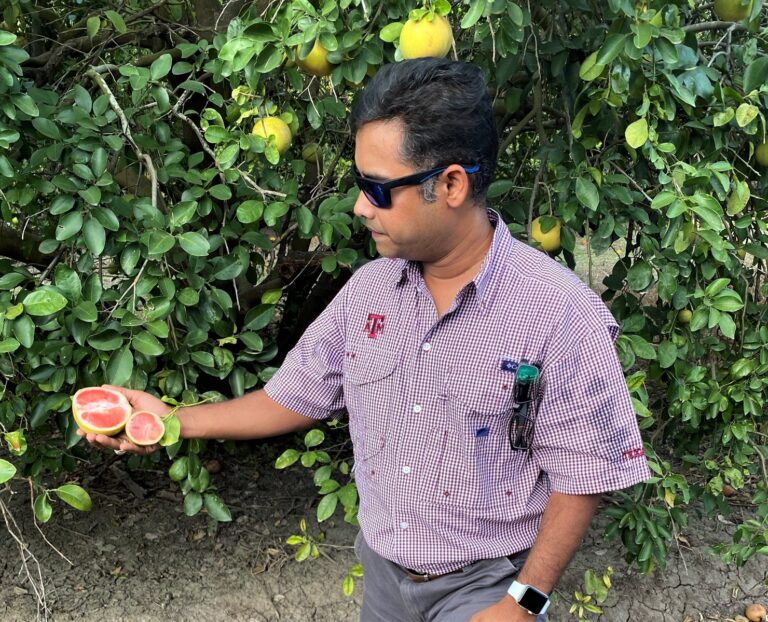By Paul Schattenberg, Texas A&M AgriLife Communications – July 26, 2023
Developing disease-resistant, high-quality improved crop varieties to benefit agricultural producers and consumers may seem like a “hairy” task, but Texas A&M AgriLife Research scientists may have gotten to the root of the issue.
A new biological technology that develops and multiplies disease-resistant citrus plants using “hairy roots” is under development by an AgriLife Research team led by Kranthi Mandadi, Ph.D. Mandadi is an AgriLife Research associate professor at the Texas A&M AgriLife Research and Extension Center at Weslaco and a faculty member of the Department of Plant Pathology and Microbiology and the Institute for Advancing Health Through Agriculture in Bryan-College Station.
At the root of their project is developing new ways to fight fastidious pathogens, which infect living plants and resist growth in a lab setting for study. One such fastidious pathogen causes citrus greening — a significant problem for the citrus industry.
Since 2021, Mandadi has spearheaded a $7 million U.S. Department of Agriculture National Institute of Food and Agriculture, multi-state Coordinated Agricultural Project that is also a designated NIFA Center of Excellence to combat citrus greening.
“Fastidious plant pathogens infect citrus, tomatoes, potatoes, grapes, peppers, and other crops grown throughout Texas,” said Dirk Hays, Ph.D., director of the Texas A&M AgriLife Center at Weslaco. “Often transmitted by insect vectors, these disease agents are responsible for billions of dollars in agricultural losses yearly.”

